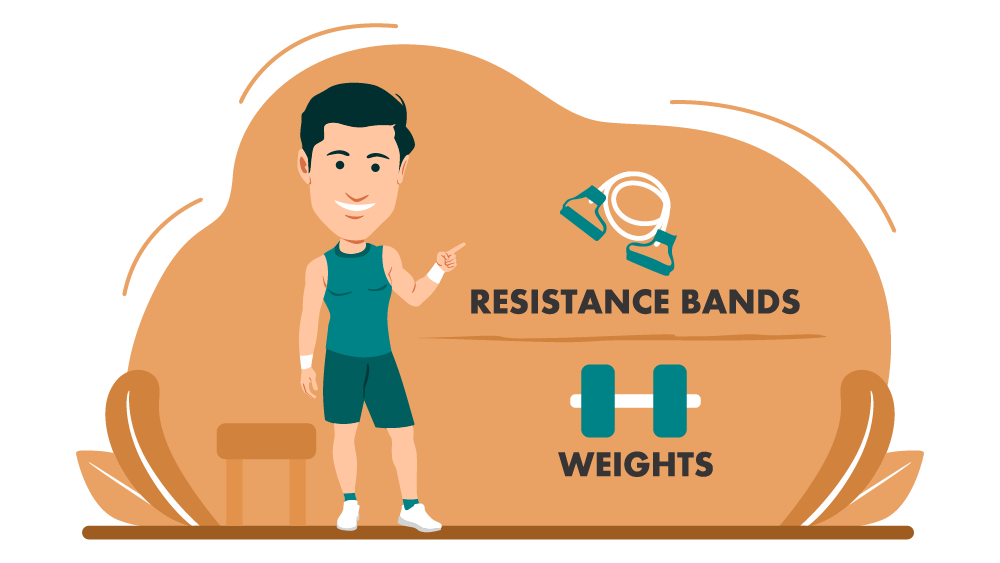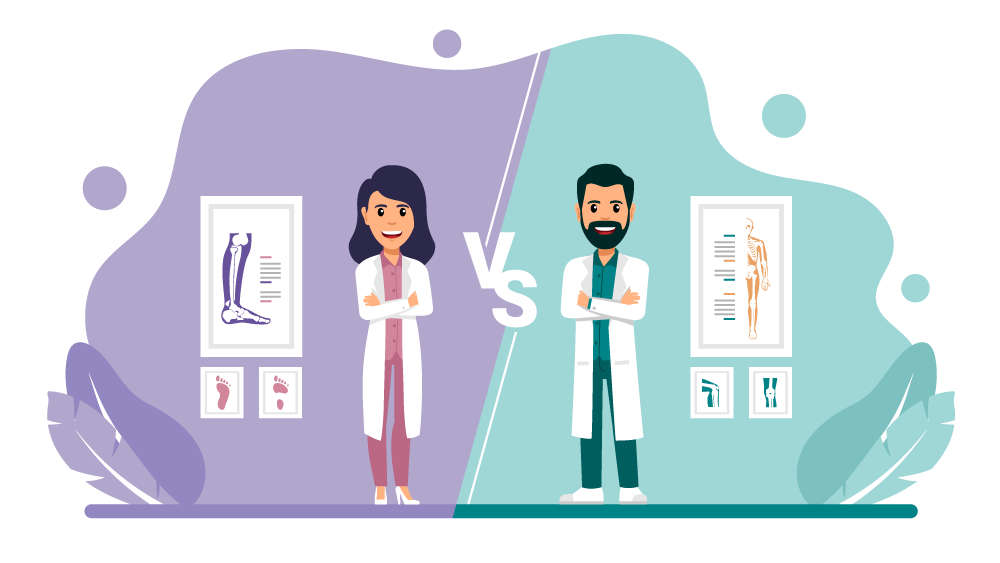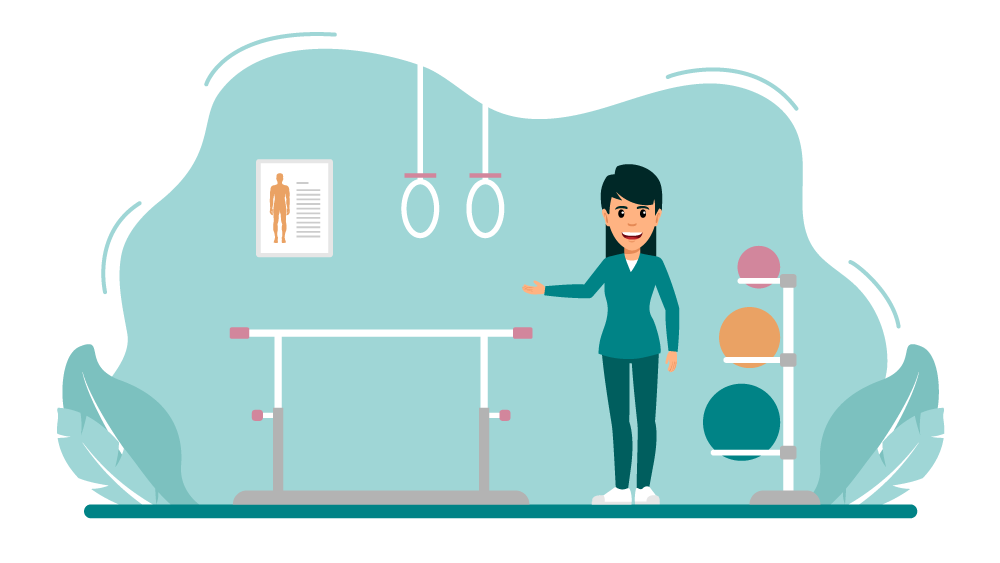Are you interested in teeth? Do you want to help people with their dental health? Becoming a dentist is a great career option. Before you learn how to become a dentist, it’s a good idea to know what this type of career will include.
A dentist is a doctor for teeth and gums. If you want to become a dentist, it’s necessary to understand what it will take. Let’s look at the process of becoming a dentist and a few of the common questions about this career.

Different Types of Dentists
Becoming a dentist can take multiple different paths. You can become a general dentist, or you can specialize in a specific area. It’s possible to become a prosthodontist, orthodontist, periodontitis, or oral and maxillofacial surgeon.
As a general dentist, you can specialize as a pediatric dentist. This type of dentist works with children from infancy to teenage years.
The Steps to Becoming a Dentist
Step #1 – Do well in math and science classes
When you sign up for high school classes, you want to take plenty of math and science classes. You should do very well with these classes and, if possible, take advanced classes. The honors and AP versions of the following classes are the best options in high school:
- Algebra
- Geometry
- Pre-Calculus
- Calculus
- Biology
- Chemistry
- Trigonometry
- Physics
- Geology
- Forensic Science
- Earth Science
- And More!
Along with taking these types of courses, you can also take AP science and math exams. Some exams are available for high school students to help them gain credit or get accepted into a higher class.
Step #2 – Learn about Dentistry
While you’re in high school, if you’re interested in becoming a dentist, now is the time to learn about the field. Find a dentist you can ask about the profession and consider shadowing a real dentist. Spending a day observing a real dentist can help you figure out if this is the right career path for you.
Step #3 – Submit the Best College Application Possible
A great college application offers a high GPA with challenging courses from your high school career. It also includes high SAT and/or ACT scores. You can use the right SAT prep course or ACT prep course to ensure you can score very high on these tests.
A personal statement and excellent letters of recommendation will help you enhance your college application, too. It’s necessary to have a stellar college application to get into the right college.
Step #4 – Take the Right College Courses
Once you’ve been accepted to a good college or university, make sure you take the right courses. It would be best if you scored very high in the right prerequisites for dental school.
It’s important to excel at as many health-oriented and science-oriented classes as possible. This should include courses in biology, organic chemistry, and anatomy.
While you don’t need a specific major, a science major can help you get into dental schools, such as biology, chemistry, or physics.
The prerequisites you need for dental school include eight hours of the following:
- English
- Physics
- Biology with lab
- General Chemistry with lab
- Organic Chemistry with lab
Step #5 – Join the American Student Dental Association
The ASDA is a great option for advice for those trying to get into dental school. You will be a part of a community of mentors and aspiring dentists. This organization can help you gain access to scholarships and more.
Step #6 – Work in Health Care, if Possible
While you’re in college, if you have time, get a part-time job in health care. You can even volunteer to help gain some experience. It’s best to work at a dental office, but any healthcare experience can help.
Step #7 – Score Very High on the Dental Admission Test
Another test you will need to score high on is the Dental Admission Test or DAT. This test will help to decide if you get accepted to dental school. With the right DAT prep course, you can ensure you not only pass but score very high on the DAT.
The DAT is given year-round. It’s a multiple-choice test covering:
- Reading Comprehension
- Perceptual Ability
- Quantitative Reasoning
- Survey of the Natural Sciences
The score will be on a scale from 1 to 30. The average score on the DAT is 19. Make sure you choose a prep course with good practice tests to ensure you’re fully prepared before taking the DAT.
Step #8 – Apply to Dental School
Before your senior year of college, it’s time to start getting ready to submit applications to dental school. Many students will apply for five to 15 different dental schools, including match schools, reach schools, and backup schools. The top dental schools in the United States to consider include:
- University of Washington School of Dentistry
- University of Michigan School of Dentistry
- Harvard School of Dental Medicine
It’s highly competitive to get accepted into dental school. Make sure you have a high GPA, DAT score, plenty of letters of recommendation, and you meet or exceed all the requirements.
Step #9 – Graduate from Dental School
After you’ve been accepted to dental school, it’s time to complete your schooling. This will take four years, and you will become a DDS or a DMD.
The first two years will include classroom and lab instruction. The emphasis will be on basic health sciences. The final two years will include working with patients with supervision.
Step #10 – Choose a Specialty
While you can certainly become a general dentist, you can also specialize. The American Dental Association recognizes ten specializations, including:
- Oral and Maxillofacial Pathology
- Dental Public Health
- Dental Anesthesiology
- Prosthodontics
- Pediatric Dentistry
- Orthodontics and Dentofacial Orthopedics
- Endodontics
- Oral and Maxillofacial Radiology
- Periodontics
- Oral and Maxillofacial Surgery
Specializing will require two or more years of additional education. It will also mean you will need to get a specialty license to go along with your general dentistry license. The actual requirements will depend on the state you’re in and the specialty.
Step #11 – Pass the National Board Dental Examination
After you complete dental school, you will need to earn your license to start working.
The licensure exam will include a written part one and part two of the exam. You will likely take the NBDE written exam part one and two during your final two years of dental school. Make sure you’re prepared for this exam.
The clinical portion of the exam will take place after you finish dental school. This portion will include working with live patients, and the requirements will depend on the state. Many candidates will fail the clinical part of the exam the first time. You can retake the test if necessary.
Frequently Asked Questions About Becoming a Dentist
Is it difficult to become a dentist?
The path to becoming a dentist is challenging. It will require extensive schooling and training before you can enter this career path.
How long does it take to become a dentist?
You will need to earn a bachelor’s degree and a dental degree. It takes about eight years to complete all the necessary schooling. It’s possible to use a combined program and complete your schooling in six to seven years.
Typically, the faster programs are offered to exemplary high school students. These students will need to earn high grades and know they want to pursue a career in dentistry.
Those deciding to specialize may need an additional two to four years in dental school. Another two years in residency may also be necessary, depending on the career path you choose.
You will train for at least six years to become a dentist, but it could take as much as 14 years.
What is the salary of a dentist?
The median pay for a dentist is $164,010 per year. The actual salary for a general dentist can range from $46K to about $165K. If you specialize in another area of dentistry, the average salary can be as follows:
- Prosthodontists – $176K
- Orthodontists – $208K
- Oral and Maxillofacial Surgeons – $208K
How much does dental school cost?
The cost to go to dental school will depend on the school you choose. If you choose an out-of-state school, it will be more expensive than choosing an in-state school. The average cost of dental school ranges from about $251K to $321K. This includes tuition, fees, and other costs.
Is dental school competitive?
Yes. Each year, about 12,000 people apply to dental school, but only about 5,000 get in. The acceptance rate is about 50%, with top schools only taking the top 5% of applicants.
Do dentists take courses after dental school?
Most states require dental continuing education for dentists. Typically it must be completed before becoming eligible to renew their license.





